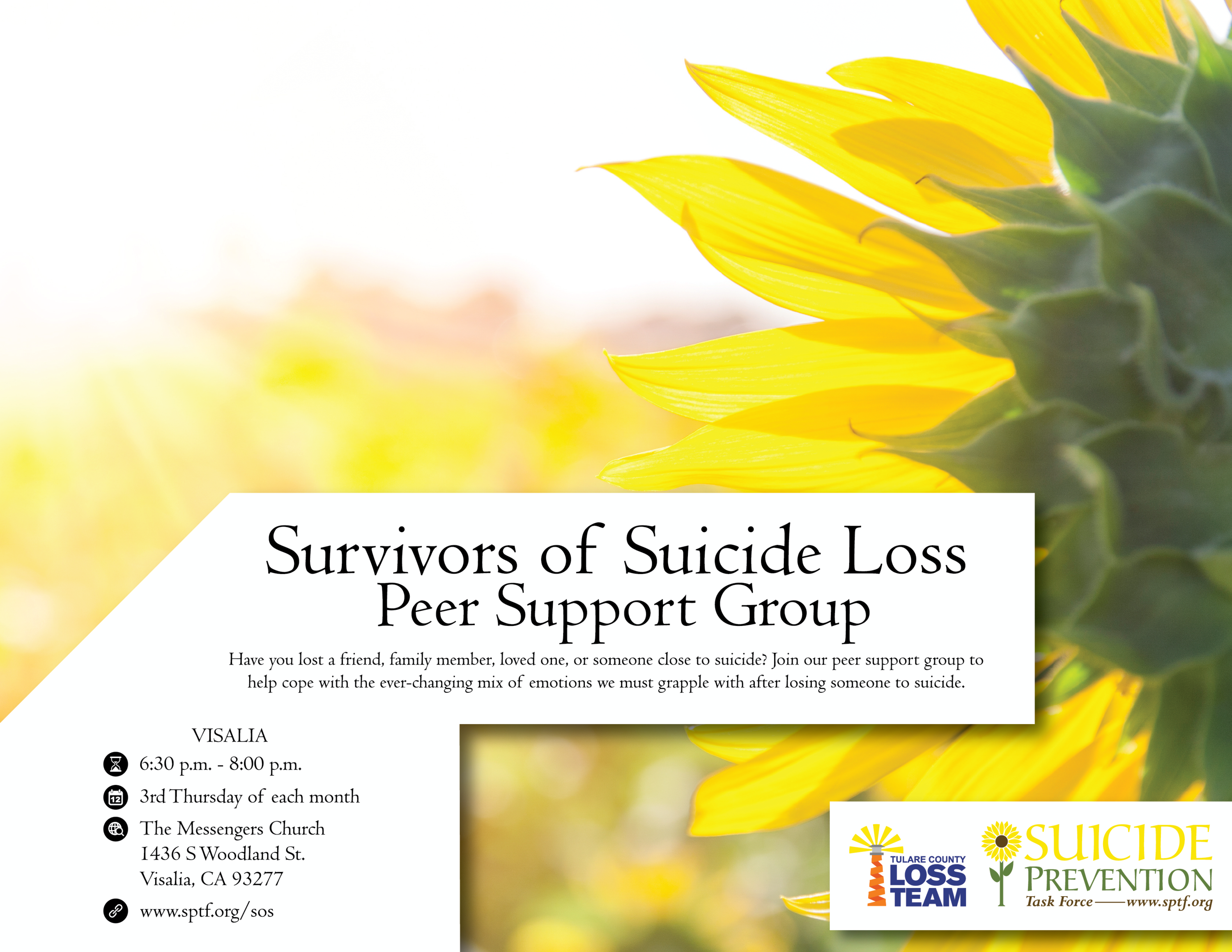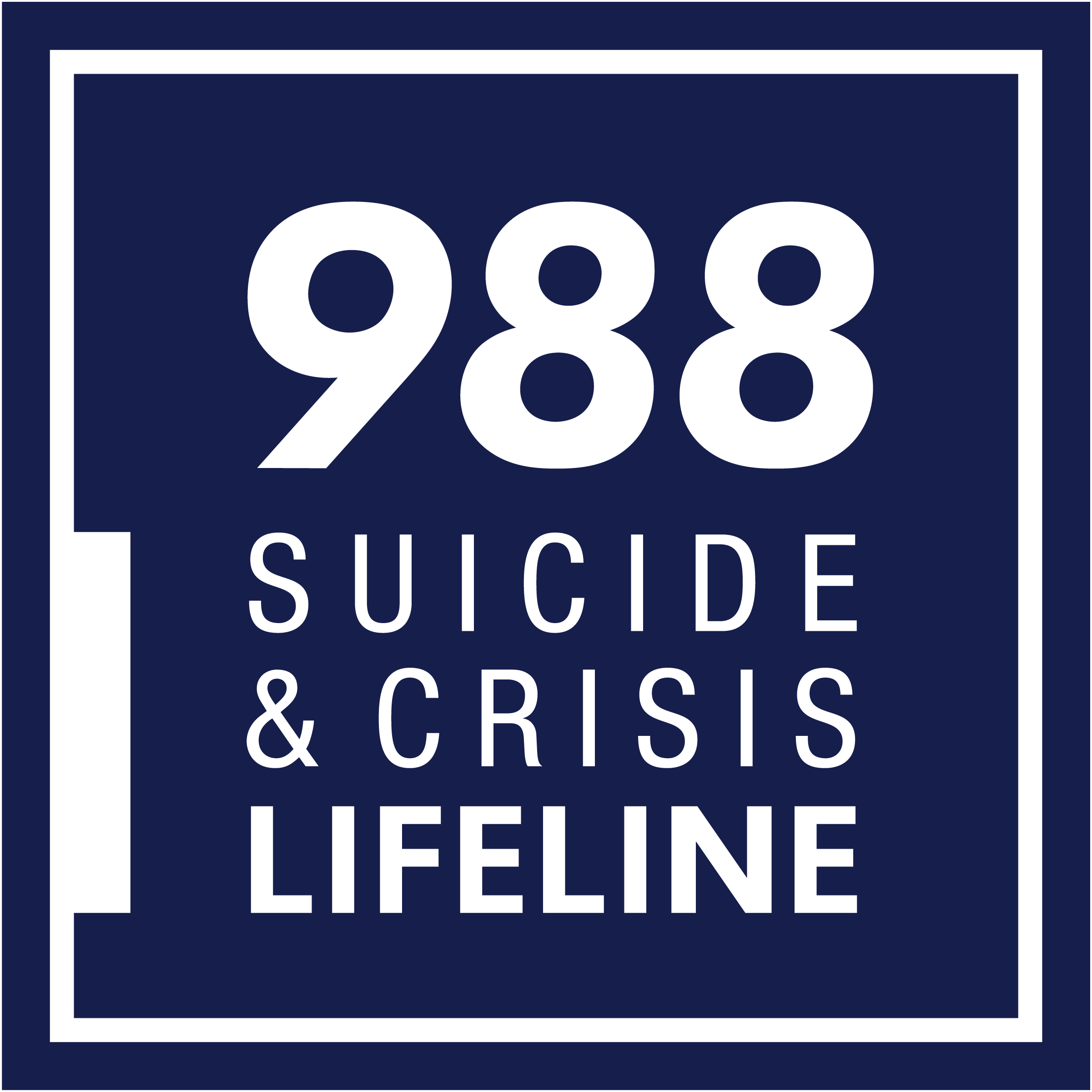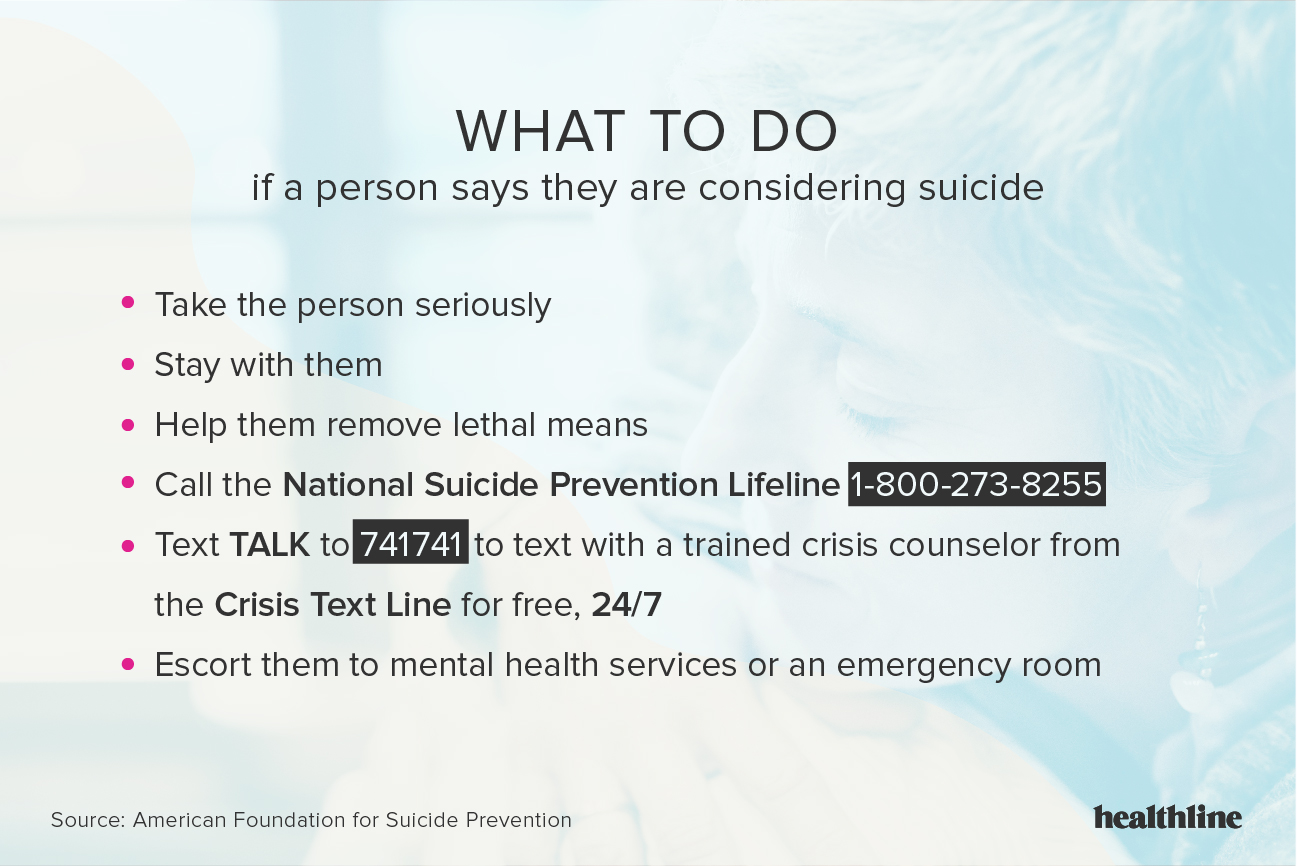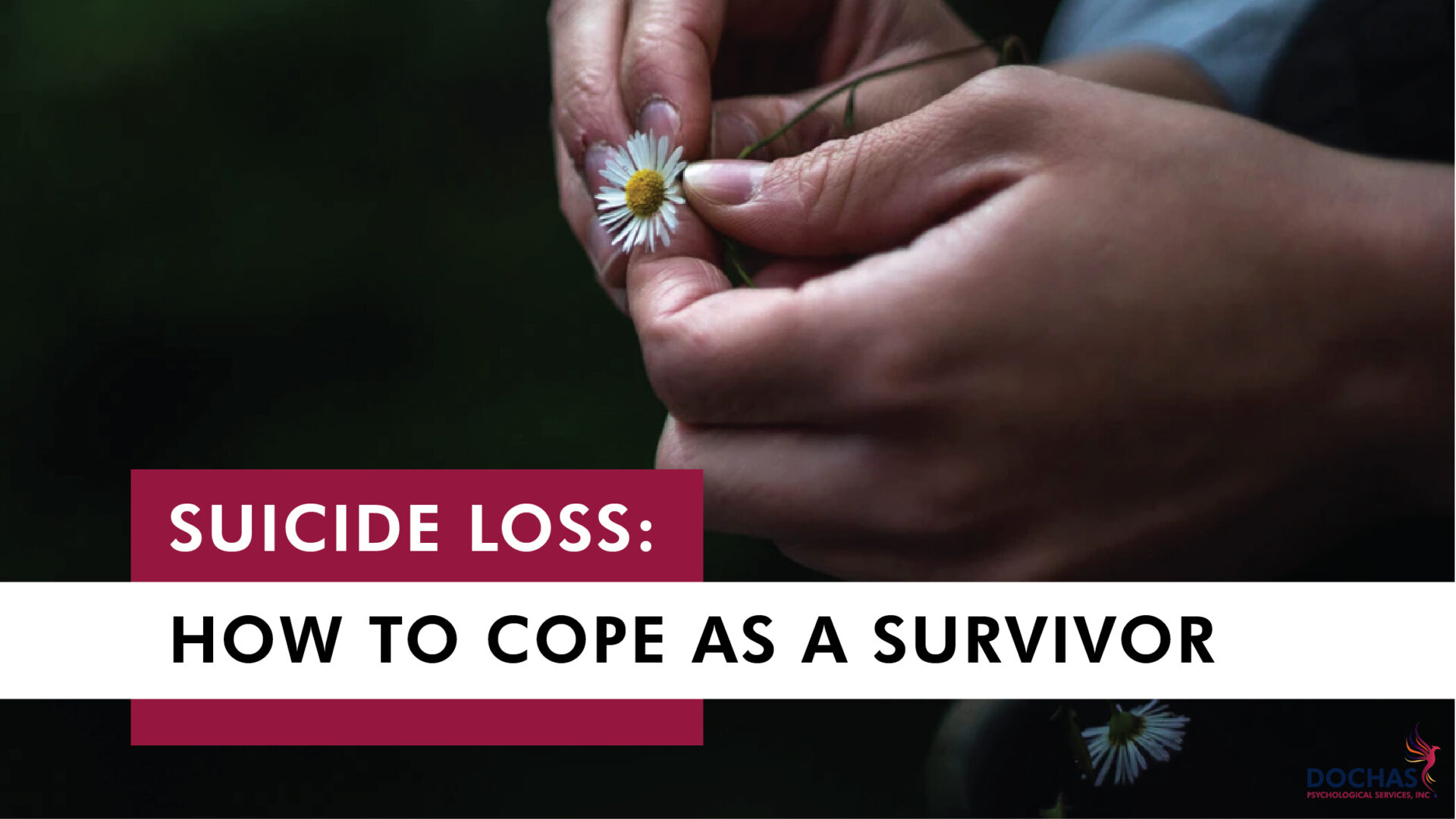Suicide How To Cope - From September 4 to September 10, people around the world recognize National Suicide Prevention Week and celebrate September 10 as World Suicide Prevention Day.
Although suicidal thoughts can be scary, they are not normal. Many people have experienced suicidal thoughts at some point in their lives. Know that you are not alone and that you can overcome these feelings and thoughts.
Suicide How To Cope

If you feel suicidal, get help right away. To report a suicide, reach out to Crisis Life or call 988 to find the nearest hospital.
Nami Wake County Suicide Prevention
Recognizing that there is no need to act on suicidal thoughts now is the first step in dealing with them. Instead of thinking about tomorrow, focus on today. You may feel overwhelmed now, but you'll feel better in a few days.
Mindfulness exercises can help you return to the present moment in the moment. These include earth techniques, breathing exercises and meditation.
Do you know what situations, events or things these thoughts lead to? Notice when it happens and try to avoid things that make you feel bad. Do you experience unwanted thoughts and feelings when listening to a certain song, watching a movie or watching a movie? Do your best to avoid them.
Suicidal thoughts can be combated through positive relationships, believing you can, caring for others, belonging, and moral/spiritual beliefs.
World Suicide Prevention Day 2022: Here's How To Cope With Anxiety And Depression
Avoid drugs and alcohol Certain parts of your brain control your behavior, judgment, and decisions that are influenced by substances. In addition to having a negative effect on your emotions, drugs and alcohol usually make things worse. It's important to stay away from alcohol and drugs because they both affect your thinking and emotions. Substance use disorders can also develop if a substance is used frequently. Find a safe place to go
If you have suicidal thoughts, play it safe, you don't want to act in those places. You might consider a friend's house, a therapist's office, a crisis center, your bedroom, or a public place like a library or coffee shop.
You may isolate yourself and resist suicidal thoughts. Meditation techniques can help you separate your thoughts from your current thoughts and focus on something more positive or neutral. There are several ways to remove yourself, including:

Talking to someone about your feelings can be very helpful. Get support from family and friends, as well as professional support from a mental health team. If you don't have a friend or family member, you can contact the following people:
To Help Others Cope With Suicide Loss, I First Had To Forgive Myself
If you're not in the mood to talk, don't spend too much time alone. Being with other people can help you feel safe, even if they don't know how you feel.
The most important thing is not just dealing with suicidal thoughts. We are here to help you. If you don't have mental health support, our care team can help you find the right provider. Contact us today to schedule an appointment.
Big changes to previous post? How to Cope With Change Next post What you need to know about addiction and mental health Live chat available from midnight to 7:00 p.m. You can text CONNECT anytime to reach a trained volunteer crisis responder 24/7.
Learn how your thoughts, feelings and behaviors are connected and what you can do to improve your well-being. Learning about mental health can help you be stronger with the language you need to communicate your feelings.
Young People Help With Suicide Prevention Programming
Experience tools, tips and resources to help you improve your skills and improve your health. Learn to identify your strengths, communicate thoughts and feelings, overcome obstacles, and connect with support.
Take quizzes to find out how much you know about specific topics and get resources to learn more. Play a game and have fun while de-stressing. Map your support network Determine when and where your community needs help. Share what's on your mind Try different tools to express your ideas. Develop security plan tools for security planning and reporting. Do it wisely, take these things easy. Try a self-assessment, find out how you feel at the moment and find resources to support you.
Learn about the life experiences of other Canadian youth. Learn from real-life youth stories, get new ideas and ask questions to connect and inspire your own health journey.
Connect with other young people Visit support forums and get inspired Learn how others are supporting their health. Connect Find out what other young people are connecting with.
Suicidal Ideation: Symptoms, Diagnosis, Treatment, Coping
If you need help now, you can contact a volunteer crisis responder who is trained in what you are going through. No problem is too big or too small.
If you identify yourself, you can contact a First Nations, Inuk or Métis crisis responder (if available) by texting FIRST PEOPLE, INUIT or METIS to 686868.
Engage with a professional advisor to better understand what you're doing and take action in the direction you want to go.
Click to call 1-800-668-6868 for 24/7 phone support in multiple languages. Learn more about telephone counseling
How To Help Prevent Suicide In A Teen Or Child
Learn about the resources around me
For a deeper understanding of mental health in Canada, you can dive into some common topics of conversation.
Want to learn about mental health, connect for support or get involved? You can also check out our tools and resources. September is Suicide Prevention Awareness Month, a time to raise awareness about the often stigmatized mental health issue. In addition to changing society's image of suicide, awareness provides hope to the public and important information to victims.

Suicidal ideation, thoughts and feelings about suicide can affect anyone regardless of age, gender or background. In fact, most suicides are caused by untreated mental health conditions. Although suicidal ideation is not uncommon, it should not be taken for granted because it usually indicates more serious problems. (National Institute of Mental Health)
New App To Help Prevent Youth Suicide
Suicidal thoughts don't mean you're not crazy, weak, or flawed. These thoughts may mean you are hurt, angry, or sad. There are many ways to deal with suicidal thoughts.
In general, working with a qualified mental health professional is the best strategy for dealing with suicidal thoughts. In addition to developing a safety plan, a therapist can help you identify potential triggers and find alternative treatment options.
Planned safety measures can go a long way to ensure safety during a crisis. Typically, prevention programs include information on suicidal ideation or early warning signs, coping strategies, and information on contacting professionals. A therapist can help you develop a plan.
Staying in touch with people you care about can ease a mental health crisis, even if feelings of guilt or burden make you want to avoid them. Reach out to someone you trust and say, “I'm having a hard time. Can you support me? "
She Talks, Asks Questions To Help Others Cope With Suicide
As complicated as it is, self-preservation plays an important role in this. Eat a balanced diet, stay hydrated, exercise (even if it's just walking around the house) and get 7 to 9 hours of sleep a night if you can. (Kerr)
TMB is a type of psychotherapy that helps you learn new coping mechanisms for stressful situations. When suicidal thoughts develop, TMB teaches people to focus on attitudes and choose other interventions. (cherry)
DBT is a form of psychotherapy that reduces suicidal ideation among adolescents. A therapist trained in DBT can help identify when a person's mood or behavior is harmful or harmful and develop coping strategies that allow them to respond more effectively to difficult situations.

It is a team approach to mental health care. The behavioral health director will work with the individual, primary care provider, and mental health professionals to develop a treatment plan. Collaborative care has been shown to be an effective method for treating depression and reducing suicidal ideation. (CDC, 2021)
Coping With Loss From Suicide
Get help even if your suicidal thoughts and feelings subside. This type of emotional pain can be a traumatic experience. Finding a support group or therapist can be very helpful in reducing future suicidal thoughts.
You can get help and referrals from your doctor or the crisis hotlines listed below. The Suicide Crisis in America:
The first three-digit mental health crisis hotline in the United States went live on Saturday, July 11, 2022. It's as easy to remember and use as 911, but instead of a dispatcher dispatching police, fire or paramedic personnel, 988 connects callers to mental health counselors.
The federal government has provided more than $280 million in funding to help states build systems that do more
Can Depression Really Kill You?
How to cope with endometriosis, how to cope with, how to cope with tinnitus, how to cope with ms, how to cope with ocd, how to cope with migraines, how to cope with narcolepsy, how to cope with diabetes, how to cope with addiction, anxiety how to cope, how to cope with adhd, how to cope with bipolar
0 Comments